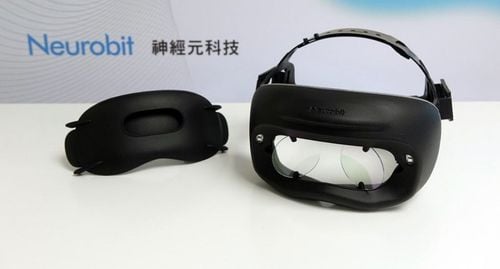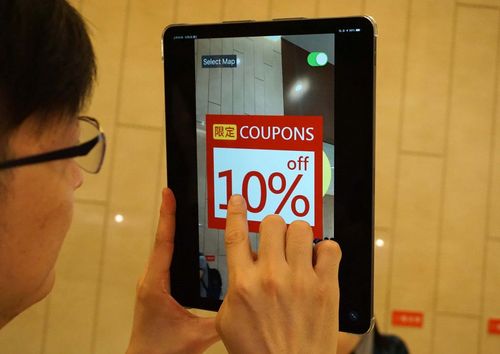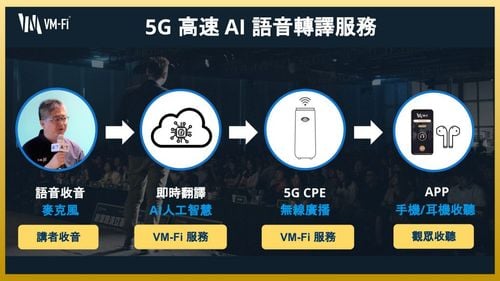【2021 Solutions】 Conversational robots become smart medical helpers, effectively reducing the labor force of 70 people
"I've been eating, drinking, and urinating a lot recently. I'm worried about whether I have diabetes?" "You can go to the hospital to measure blood sugar. If fasting blood sugar is higher than 100 mg/dL, and postprandial blood sugar is higher than 140 mg/dL, glycated hemoglobin 5.7~6.4%, you may have signs of pre-diabetes.” The person talking to the patient may not be a real person, but an intelligent conversation robot. This is a smart medical robot developed by Asia Pacific Intelligent Machine Company, which specializes in Natural Language Understanding (NLU) technology. Through multiple rounds of dialogue, it can reduce about 70% of the manpower in medical clinics.
Founded in 2017, Asia Pacific Intelligent Machine Company, founder and CEO Jerry Wu is a well-known expert in the field of AI and one of the few Google Developers Experts in Asia. In the early days of its establishment, it used the interactive conversational robot Open Talk platform to enter smart manufacturing, insurance, media and other industrial fields.
AI applications grow from broad to refined, Asia-Pacific intelligent machines target the health care field to deeply explore the market
"AI technology is a very professional field. To achieve in-depth development, a huge amount of manpower and resources must be expended." From the beginning of its establishment, it has explored industrial-wide AI applications. After four years of exploration, Jerry understands that With limited manpower and resources, it is necessary to focus and deepen in one vertical field in order to create more revenue sources. Therefore, in the past two years, Asia-Pacific Intelligent Machines has decided to focus on the fields of smart health and smart care by using the health and medical corpus accumulated on the Open Talk platform. Based on Open Talk, it has developed more accurate auxiliary robots required by medical hospitals. as goal.

▲AMPIC Healthcare’s Key Advantages
Asia-Pacific Intelligent Machinery started cooperation with Formosa Biomedical Engineering, and currently has accumulated more than 40 medical institutions, covering biotech medicine, medical cosmetology, rehabilitation, etc.
Affected by the novel coronavirus pneumonia (COVID-19) epidemic, during the level three alert period, people stayed at home and did not even dare to go to the hospital for medical treatment even if they were sick. At this time, Asia Pacific Smart Machine's video medical solution is dispatched It is used in non-contact cloud-based physiological measurements to provide doctors with a reference for long-term care and observation, helping to solve the problem of medical institutions using telemedicine for patient care.
The specific method is that after seeing the doctor, if the patient has questions about related medications, prescriptions, etc., he or she can directly contact the voice robot through the social communication line. Patients with chronic diseases do not need to upload blood pressure, blood oxygen, heartbeat and other data. They only need to upload an 8-second video of their own face close-up, and the calculation time is 30 seconds to analyze the patient's pulse index, heartbeat, muscle fatigue and other values. , if any abnormality is discovered, the patient can also seek medical treatment immediately.
Using labeling algorithm to mix physiological measurements (seeing) and conversational technology (listening), it can improve intention understanding by 80%
Why can physiological data be measured through close-up videos of faces? Jerry further explained that it mainly relies on the AI algorithm label judgment in the background of the system, which means observing the flow of blood vessels based on the reflected light on the face in the video, performing identification actions, and judging the values of heartbeat and blood pressure. The recognition rate is It can reach 80%-90%, which is equivalent to the data measured by the blood pressure machine.
The difference is that uploading data through a blood pressure machine requires purchasing a blood pressure machine and a self-measurement uploading platform. Generally, patients with chronic diseases are mostly middle-aged and elderly people who often forget to measure their blood pressure, which affects the continuous collection of physiological data. The action of video shooting and uploading can improve patient cooperation in hospitals and also help clinics continue to track the conditions of chronic patients. Because with physiological measurement data, combined with dialogue technology, we can understand the customer's care needs and intentions, reaching 90%. For example, if the customer has high blood pressure, abnormal lactic acid value, there may be some possible physical problems, if we match the customer For the content of robot interaction, OpenTalk can parse the two data sources to analyze the customer's intention and further feed it back to the doctor or caregiver, who will decide which care actions to take.
For example: in the field of medical beauty, medical beauty clinics care about what kind of beauty care customers want to do. Through robot dialogue and interactive behavior on the device, Asia Pacific Intelligence performs labeling actions, including extracting things of concern in the dialogue. , show the intention, such as wanting to do hyaluronic acid, small needle beauty, etc., collect voice and audio and video data, and integrate it into personalized tags, you can recommend skin care treatments, business shopping guides, or list tracking cases, etc., becoming a medical beauty The best assistant for the clinic to understand its clients.
The care platform recruits an AI technology team and will target the Japanese and Thai markets for international export in the future
The AI technology of Asia-Pacific Intelligent Machines starts from natural language understanding and performs labeling actions from conversations. In addition to natural language processing, it also focuses on machine vision technology. Through images, including the recognition of customer age, gender, and facial emotions, it also masters visual tags and dialogue tags to deeply understand customer needs.

Due to the huge number of disciplines in the medical field, Asia-Pacific smart machines have initially targeted the medical beauty and long-term care markets, and have adopted the concept of a care platform to recruit other AI technology teams. At this stage, it has included the detection of dementia and sarcopenia. It is expected to be included in the future, including blood sugar detection, gastroenterology, ophthalmology, etc., to explore potential markets and find powerful AI technology partners to jointly develop AI detection technology to make the health and medical services covered by the care platform more complete.
The Open Talk platform supports multiple languages including Chinese, Taiwanese, English, Japanese and Thai, and has more than 130 automatic question and answer skills, which can automatically grasp customer emotions and customer needs. In the future, in addition to plans to introduce more than 100 automatic Q&A skills to medical institutions in 2022, In addition to the 200 companies, it will also target the Japanese and Thai markets, enter overseas markets, and export service solutions internationally.

「Translated content is generated by ChatGPT and is for reference only. Translation date:2024-05-19」


